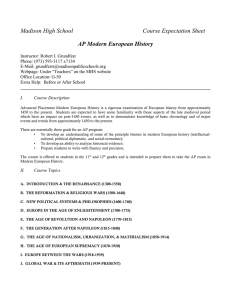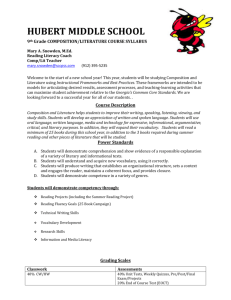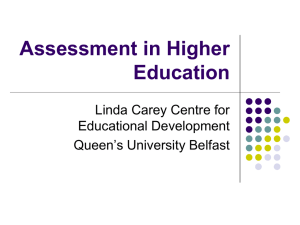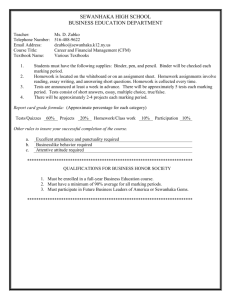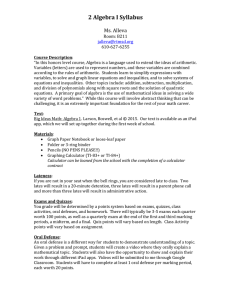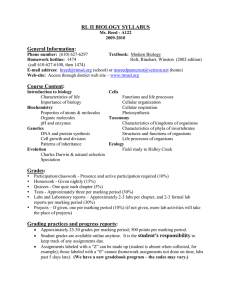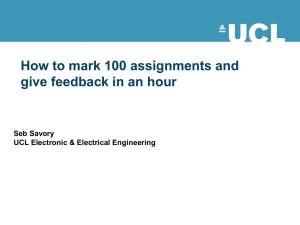Centre for Applied Linguistics Assessment Strategy
advertisement
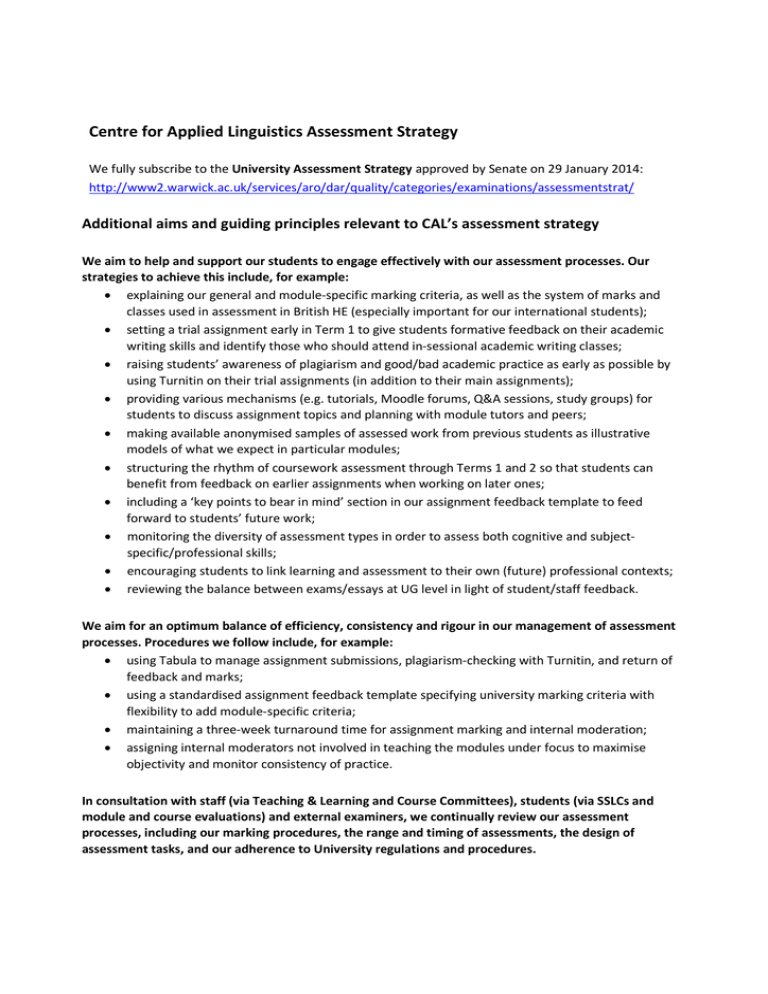
Centre for Applied Linguistics Assessment Strategy We fully subscribe to the University Assessment Strategy approved by Senate on 29 January 2014: http://www2.warwick.ac.uk/services/aro/dar/quality/categories/examinations/assessmentstrat/ Additional aims and guiding principles relevant to CAL’s assessment strategy We aim to help and support our students to engage effectively with our assessment processes. Our strategies to achieve this include, for example: explaining our general and module-specific marking criteria, as well as the system of marks and classes used in assessment in British HE (especially important for our international students); setting a trial assignment early in Term 1 to give students formative feedback on their academic writing skills and identify those who should attend in-sessional academic writing classes; raising students’ awareness of plagiarism and good/bad academic practice as early as possible by using Turnitin on their trial assignments (in addition to their main assignments); providing various mechanisms (e.g. tutorials, Moodle forums, Q&A sessions, study groups) for students to discuss assignment topics and planning with module tutors and peers; making available anonymised samples of assessed work from previous students as illustrative models of what we expect in particular modules; structuring the rhythm of coursework assessment through Terms 1 and 2 so that students can benefit from feedback on earlier assignments when working on later ones; including a ‘key points to bear in mind’ section in our assignment feedback template to feed forward to students’ future work; monitoring the diversity of assessment types in order to assess both cognitive and subjectspecific/professional skills; encouraging students to link learning and assessment to their own (future) professional contexts; reviewing the balance between exams/essays at UG level in light of student/staff feedback. We aim for an optimum balance of efficiency, consistency and rigour in our management of assessment processes. Procedures we follow include, for example: using Tabula to manage assignment submissions, plagiarism-checking with Turnitin, and return of feedback and marks; using a standardised assignment feedback template specifying university marking criteria with flexibility to add module-specific criteria; maintaining a three-week turnaround time for assignment marking and internal moderation; assigning internal moderators not involved in teaching the modules under focus to maximise objectivity and monitor consistency of practice. In consultation with staff (via Teaching & Learning and Course Committees), students (via SSLCs and module and course evaluations) and external examiners, we continually review our assessment processes, including our marking procedures, the range and timing of assessments, the design of assessment tasks, and our adherence to University regulations and procedures.
